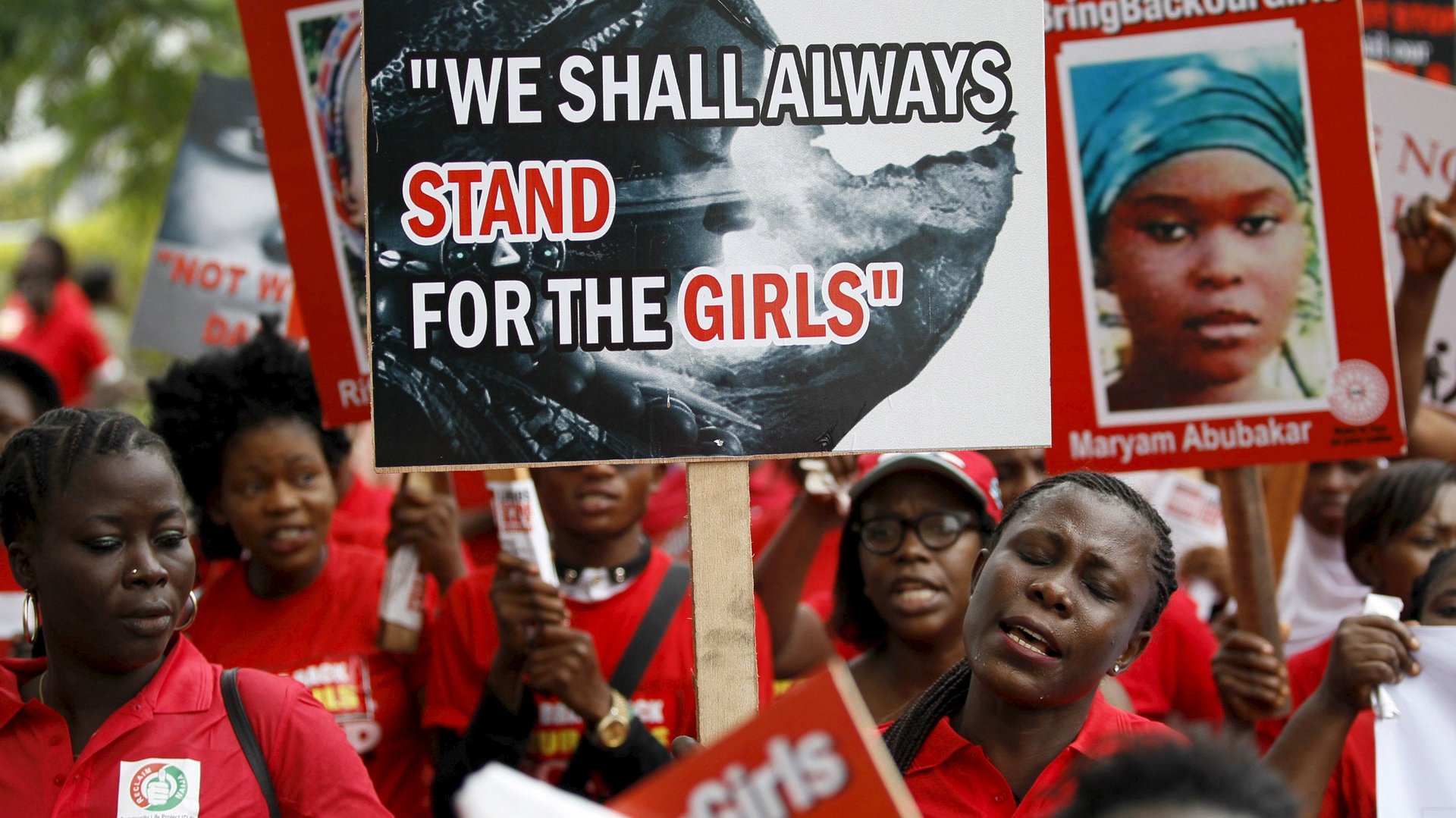Nigeria is in negotiations to free more of the kidnapped Chibok girls
Nigeria’s government has confirmed that it is in negotiation with the militant group Boko Haram for the release of more of the 276 kidnapped schoolgirls known as the “Chibok girls.” The girls were kidnapped in April 2014 from a school dormitory in Chibok, in Nigeria’s troubled northeast, and 195 are still missing.


Nigeria’s government has confirmed that it is in negotiation with the militant group Boko Haram for the release of more of the 276 kidnapped schoolgirls known as the “Chibok girls.” The girls were kidnapped in April 2014 from a school dormitory in Chibok, in Nigeria’s troubled northeast, and 195 are still missing.
In a meeting with journalists on Tuesday (Apr. 11) in Abuja, Nigeria’s capital, Nigeria’s vice-president Yemi Osinbajo said “there is a lot of negotiation” going on between the government and Boko Haram for the release of the girls. Complicating the process, the government is in negotiations with two separate factions of Boko Haram, Osinbajo said.
Last year, following an internal clash, Boko Haram split into two groups, with a breakaway faction led by Abu Musab al-Barnawi, believed to be a son of the late founder of the group, Mohammed Yusuf. Abubakar Shekau, the group’s longtime leader, remains in charge of another faction. Each Boko Haram faction is holding some of the Chibok girls captive.
The Chibok girls are far from the only girls and women kidnapped by Boko Haram, but their case has gotten international attention and prompted the hashtag #BringBackOurGirls. So far, only 22 of the kidnapped girls have been released. One of the girls was rescued as part of an operation by the Nigerian Army, and 21 others were released following negotiations involving Red Cross and the Swiss government.
For the families of the kidnapped girls, it has been a three-year wait for their return, with little certainty as to whether all the kidnapped girls are still alive. Back in August, Boko Haram claimed some of the kidnapped girls had been killed by airstrikes by Nigeria’s air force, while an unspecified number have been married off.
There are also fears that some of the girls may have been deployed as suicide bombers by the terrorist sect. In the first quarter of 2017 alone, 27 teenage girls have been used as suicide bombers by Boko Haram, according to UNICEF.
Should they be released, new opportunities await the Chibok girls. Robert Smith, the billionaire founder of Vista Equity Partners, a San Francisco-based private equity firm, is helping the Chibok girls who have been rescued so far reintegrate into society by offering them educational scholarships at the $8000-per-session American University of Nigeria.